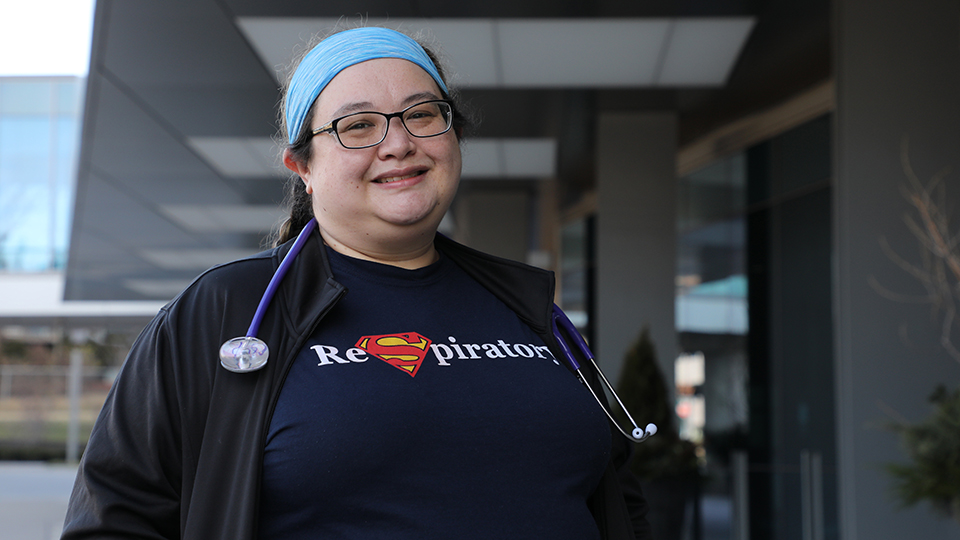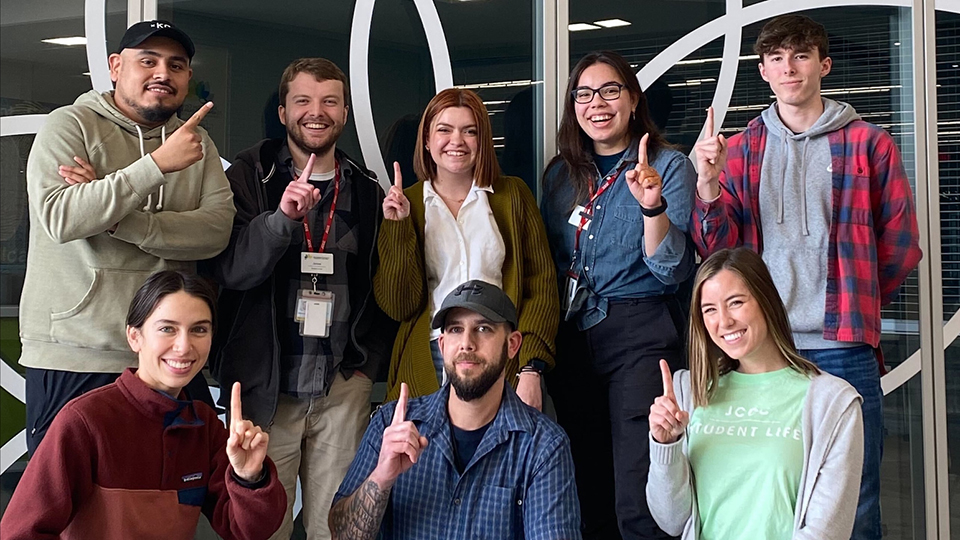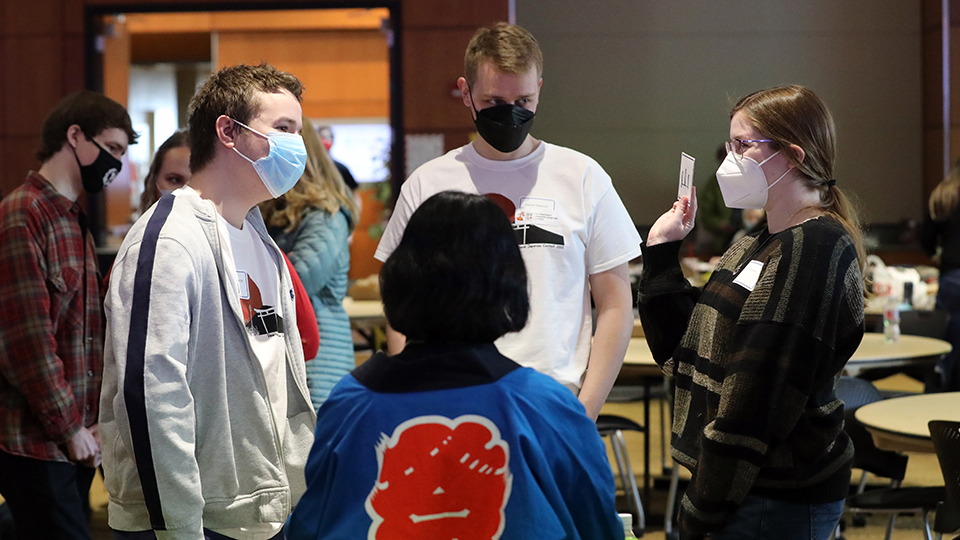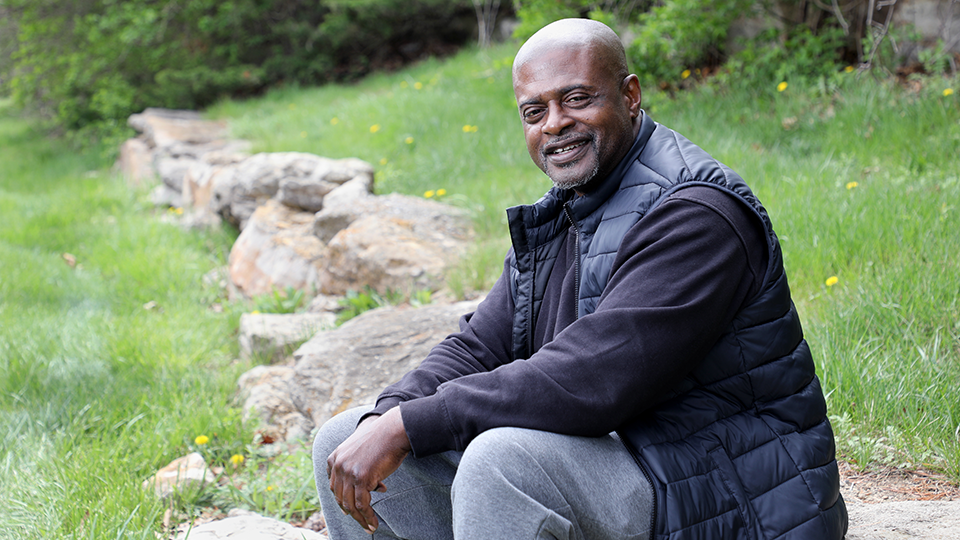December 17, 2020
Providing care and compassion during COVID-19
At the onset of 2020, brand-new respiratory therapist Stephanie Ghilino did not expect to be thrust into the middle of a respiratory-based pandemic. Prior to March, when she told people what she did for a living, it was usually met with a quizzical look.
“We have always been the little-known heroes in healthcare,” she said.
Today Ghilino finds herself on the front lines in the war on COVID-19. Almost everyone has become more familiar with the specialized care and expertise a respiratory therapist provides.
Preparation and Training
To become a Registered Respiratory Therapist (RRT) she had to pass advanced-level written and clinical simulation examinations with the National Board for Respiratory Care. She is currently employed as an RRT by The University of Kansas Health System, but she credits Johnson County Community College with making her career a reality.
Affordability and flexible course options were two of the biggest reasons Ghilino decided to pursue an Associate of Applied Science degree at JCCC. A mother of three, she needed a program that was economically feasible and a good fit with her schedule and responsibilities.
“Without JCCC, I would never have been able to enter the Bachelor of Science in Respiratory Therapy program at the University of Kansas, and I would not be a Registered Respiratory Therapist today,” she said.
Uncharted Territory
During the first several months of the pandemic, the greatest challenges Ghilino and her colleagues faced were the countless unknowns. “We didn’t know how the virus was transmitted, how to treat the virus, or its long-term effects on different populations,” she said.
For those reasons, Ghilino spent several months isolating from her children and extended family for fear she would infect them.
“I still worry about bringing it home,” she said. “But I know with diligent use of my personal protective equipment (PPE) at work, I’m doing all I can to keep myself and my family healthy.”
Critical Care, Compassion and Camaraderie
In addition to the stress of keeping her family safe, she’s had to deal with the ups and downs of treating critically ill patients.
“The year has been filled with a lot of heartbreak, but also immense joy,” she said. “I’ve extubated patients who were expected to decline quickly without the ventilator, only for them to exceed expectations and be discharged … and I’ve had patients doing well during my shift, only to find out they passed during the night.”
Ghilino treats everyone she cares for like family. “If it were my family member, I would want the best for them,” she said, “so I try to give that to all of my patients.”
One of the best things she’s seen come from the pandemic is the solidarity it has created among colleagues. Ghilino is proud of how hospital staff have come together to provide extraordinary care, despite a global shortage of healthcare professionals, hospital beds, medications and PPE.






